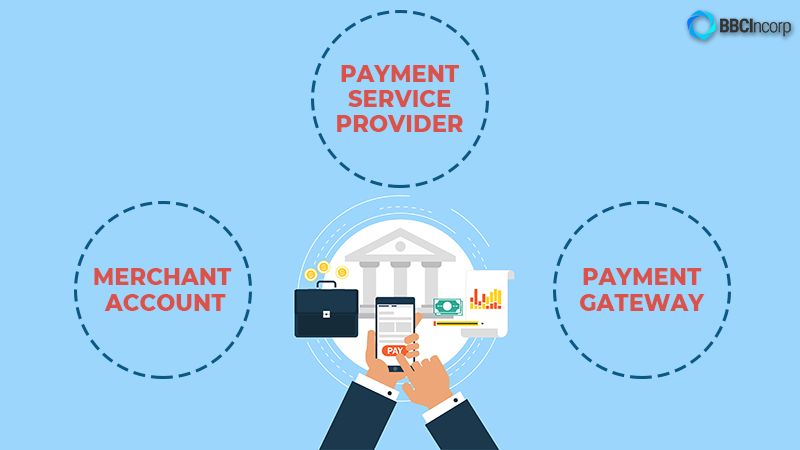
Table of Contents
What is a merchant account?
A merchant account is a specialized type of bank account that allows businesses to accept payments, primarily via credit card and debit card transactions. It serves as an intermediary between the business, the customer’s card-issuing bank, and the payment processor.
Merchant accounts are divided into two main categories: high-risk and low-risk, based on the level of risk associated with handling payment transactions. These classifications have a notable impact on the terms, fees, and the overall approval procedure when a business applies for a merchant account.

High-risk merchant accounts
High-risk merchant accounts are designed for businesses that face a higher level of risk when it comes to processing payments. This increased risk can be linked to various factors, including the industry’s nature or the company’s historical payment record.
Some examples of high-risk businesses include those involved in online gambling, adult entertainment, CBD and cannabis-related operations, pharmaceuticals, telemarketing, or debt collection.
Some key characteristics of high-risk merchant accounts are:
- Higher processing fees: High-risk businesses typically pay higher transaction fees and discount rates to compensate for the perceived risk.
- Stricter due diligence: Obtaining a high-risk merchant account often involves more thorough due diligence by the payment processor or acquiring bank.
- Rolling reserves: Some high-risk businesses may be required to maintain a rolling reserve, where a percentage of their revenue is held in reserve to cover potential chargebacks.
- Limited provider options: High-risk businesses may have fewer options when it comes to choosing a payment processor, and approval can be more challenging.
Low-risk merchant accounts
Low-risk merchant accounts are designed for businesses that are perceived to have a lower risk level when it comes to processing payments. These businesses are less likely to face issues such as chargebacks or fraud. Examples of such businesses encompass retail stores, e-commerce websites, and restaurants.
Some key features of low-risk merchant accounts include:
- Lower processing fees: Low-risk businesses enjoy lower transaction fees and discount rates because they pose less risk to payment processors.
- Easier approval process: Obtaining a low-risk merchant account typically involves a simpler and quicker approval process.
- Fewer restrictions: Low-risk businesses are generally subject to fewer restrictions and requirements, making payment processing more straightforward.
You may be interested to know top 5 business banking options for eCommerce.
What is a payment gateway and payment service provider?
A payment gateway and a payment processor are two essential components of the electronic payment processing ecosystem, each fulfilling a specific role in facilitating transactions.
Together, they enable the seamless execution of payments through methods like credit cards, debit cards, or other electronic means.
Both payment gateway and processor are crucial in the realm of online payments, and their absence would result in an incomplete transaction process, preventing customers from making online payments.
Payment gateway
A payment gateway is a technology platform that securely transmits transaction data between a customer’s payment method (e.g., credit card) and the payment processor. It facilitates real-time authorization and processing of payments, ensuring the secure exchange of payment information.
Common payment gateway providers include PayPal, Authorize.Net, Stripe, and Square, among others.
Typically, a payment gateway handles:
- Encrypts and securely transmits payment data
- Communicates with the payment processor to request authorization
- Facilitates real-time processing of payments
- Implement security measures to protect against fraud and remain confidential
Payment service provider
A payment service provider (PSP), also referred to as a payment processor, is a financial entity or a company that offers a range of services related to processing electronic payments on behalf of businesses and individuals. It plays a central role in the authorization, processing, and settlement of electronic payments.
Many PSPs offer payment gateway as one of their services, but they also provide additional services such as fraud prevention, multi-currency support, reporting and analytics, subscription management, and more.
Well-known payment service providers in the market include Stripe, PayPal, and Wise.
Why should you open a merchant account?
Opening a merchant account can be beneficial for businesses, particularly those involved in ecommerce where electronic payments are a common form of transaction.
Here are several reasons why a business might consider opening a merchant account:
- Accept credit and debit cards: A merchant account allows a business to accept payments via credit and debit cards, which are a preferred payment method for many customers. This expands the customer base and can lead to increased sale
- Enhanced credibility: Accepting card payments can enhance a business’s credibility and professionalism in the eyes of customers. It can make your business appear more trustworthy and established.
- Improved cash flow: Electronic payments are processed quickly, leading to faster access to funds compared to traditional paper checks. This can improve a business’s cash flow and help with managing expenses and investments.
- Reduced risk: Accepting card payments can reduce the risk of fraud and bounced checks. Payment processors have security measures in place to help protect against fraudulent transactions.
Need help with opening your bank account?
At BBCIncorp, we have the connections to help you set up a business bank account in no time! Contact us today for practical support.
Conclusion
By now, you should have a solid understanding of the three key concepts and their respective features: merchant accounts, payment service providers, and payment gateways.
Whether you operate an e-commerce store or any other type of business, familiarizing yourself with and distinguishing between these concepts is an essential step towards running your business more efficiently.
If you have any questions or concerns regarding these concepts, please don’t hesitate to reach out to us at service@bbcincorp.com.
Frequently Asked Questions
What is the relationship between Merchant Accounts, Payment Gateways, and Payment Service Providers
The relationship between these components is as follows:
- A business typically sets up a merchant account to establish the capability to accept payments.
- They integrate a payment gateway into their website or systems to facilitate the secure transmission of payment data.
- Many businesses opt to use Payment Service Providers, which offer both merchant accounts and payment gateways, as well as additional services to simplify the payment process and enhance functionality.
What is the difference between Merchant accounts and Payment gateways?
Merchant account and payment gateway are two distinct components in the process of accepting electronic payments, especially in e-commerce.
A merchant account is a bank account that holds funds from customer transactions, while a payment gateway is a technology that securely transmits payment data for authorization.
Merchant accounts manage finances, while payment gateways handle data and connectivity.
What is the difference between Payment gateways and Payment processors?
A payment gateway is a secure technology used to transmit payment information for authorization during a transaction.
On the other hand, a payment processor, often referred to as a Payment Service Provider (PSP), offers a more extensive set of services beyond just the payment gateway. These services include managing merchant accounts, preventing fraud, and more, all designed to facilitate electronic payments.
For instance, Stripe is an example of a Payment Service Provider that not only provides payment gateway capabilities but also offers a comprehensive suite of payment processing services. This suite includes setting up merchant accounts, analyzing payment data, and detecting and preventing fraud.
Disclaimer: While BBCIncorp strives to make the information on this website as timely and accurate as possible, the information itself is for reference purposes only. You should not substitute the information provided in this article for competent legal advice. Feel free to contact BBCIncorp’s customer services for advice on your specific cases.
Industry News & Insights
Get helpful tips and info from our newsletter!
Stay in the know and be empowered with our strategic how-tos, resources, and guidelines.





